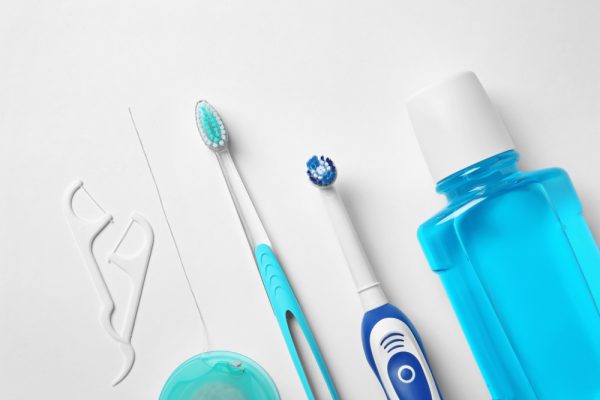Poor Oral Hygiene Can Affect Your Oral Health
Oral Hygiene Is Important
Maintaining good oral hygiene is important not only for maintaining a healthy smile but also for your overall health. Poor oral hygiene can lead to a range of dental problems, from minor issues like bad breath and tooth decay to more severe issues such as gum disease and tooth loss.
At Aesthetic Dental Associates, our Seattle dentist wants our patients to understand why dental cleanings can prevent dental issues from arising and encourage proper oral hygiene practices.

How Does Poor Dental Hygiene Affect Your Oral Health?
Poor dental hygiene can have several negative effects on your oral health, including:
- Plaque and Tartar Build-Up: When you don’t brush and floss your teeth regularly, plaque, a sticky film of bacteria, accumulates on your teeth. Plaque can harden and turn into tartar, leading to tooth decay and periodontal disease.
- Tooth Decay: When bacteria in the plaque consume the sugars and carbohydrates from the food you eat, they produce acid that can erode the enamel, leading to cavities.
- Gum Disease: The build-up of plaque and tartar can cause inflammation of the gums, leading to gingivitis. If left untreated, gingivitis can progress to periodontitis, a more severe form of gum disease that can lead to tooth loss.
- Bad Breath: Poor oral hygiene can cause bad breath or halitosis, which can be embarrassing and affect your social life.
- Stained Teeth: When you consume certain foods and drinks, such as coffee, tea, and wine, the pigments in them can stain your teeth. Poor oral hygiene can make these stains worse by allowing them to accumulate over time.
Dental Problems That Can Arise Due to Neglected Oral Hygiene
If you don’t take care of your dental health well, you may experience the development of oral health problems.
Tooth Loss
Gum disease can lead to tooth loss if it’s not treated promptly. The bacteria in plaque and tartar can damage the gum tissue and bone that support your teeth, leading to tooth loss. Tooth loss can have a significant impact on your ability to chew and speak, as well as affect your appearance. By properly practicing good oral hygiene habits, you can prevent tooth loss and costly dental treatments.
Tooth Sensitivity
When the protective enamel on your teeth wears away due to poor dental hygiene, the nerves inside your teeth can become exposed, leading to sensitivity to hot, cold, sweet, or acidic foods and drinks. This can make eating and drinking uncomfortable and affect your quality of life.

Abscessed Teeth
When tooth decay goes untreated, it can cause a bacterial infection in the tooth pulp, leading to an abscessed tooth. This can cause severe pain and swelling and even lead to tooth loss if left untreated.
Oral Cancer
Poor oral hygiene can increase the risk of oral cancer. Oral cancer can affect the lips, tongue, cheeks, and throat, and if not detected early, can be life-threatening. Regular dental checkups can help detect oral cancer in its early stages when it’s most treatable.
The Benefits of Dental Cleanings
Dental cleanings are an essential part of maintaining good oral health. Regular cleanings can help remove plaque and tartar buildup, preventing tooth decay and gum disease.
Other benefits of dental cleanings include:
- Fresh Breath: Dental cleanings can help eliminate bad breath, leaving your mouth feeling fresh and clean.
- Early Detection of Dental Problems: Regular dental checkups can help detect dental problems early, preventing them from becoming more severe.
- Improved Overall Health: Poor oral health has been linked to several health problems, including heart disease, diabetes, and stroke. Regular dental cleanings can help improve your overall health by reducing the risk of these conditions.
Frequently Asked Questions
There’s evidence to suggest that poor oral hygiene and gum disease may contribute to an increased risk of heart disease. The bacteria that cause gum disease can enter the bloodstream and cause inflammation in the heart and blood vessels. Maintaining good oral hygiene may help reduce the risk of heart disease.
Yes, poor oral hygiene can affect your overall health. Oral bacteria can enter the bloodstream through gum tissues, potentially causing inflammation and infections in other parts of the body. Research has linked poor oral health to various health issues, such as heart disease, stroke, diabetes, respiratory problems, and pregnancy complications.
Yes, brushing and flossing regularly can help improve your oral health by removing plaque and preventing tooth decay and gum disease. However, we also recommend visiting your dentist twice a year for dental checkups and cleanings to ensure your oral health is in good condition.
You can improve your oral hygiene by brushing and flossing your teeth regularly, using mouthwash, avoiding sugary and acidic foods and drinks, and visiting your dentist regularly for cleanings and checkups.
Our Seattle Dentist Can Help You Achieve Excellent Oral Health
Poor oral hygiene can harm your oral health and overall well-being. However, with regular dental checkups, cleanings, and good oral hygiene practices, you can maintain good oral health and prevent future dental problems. Schedule your appointment with our Seattle dentists today to get your oral health on track.

